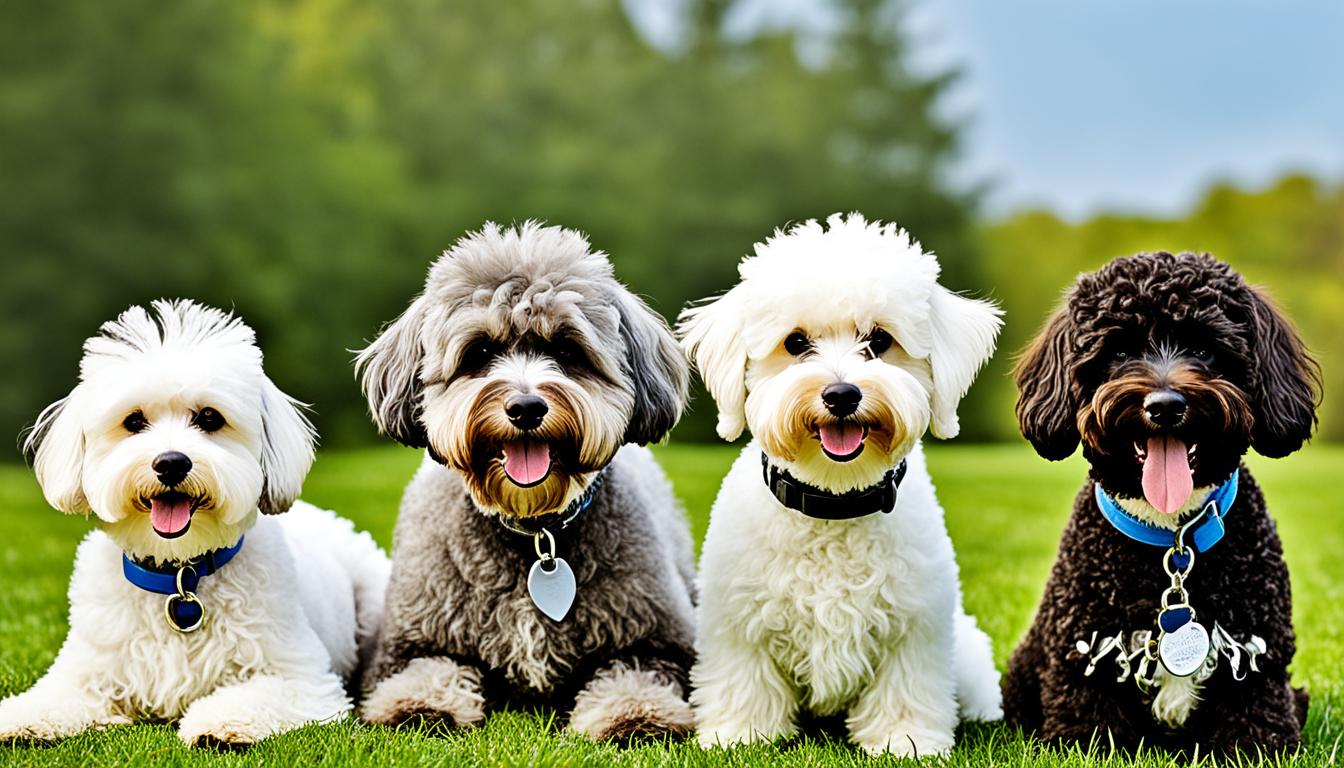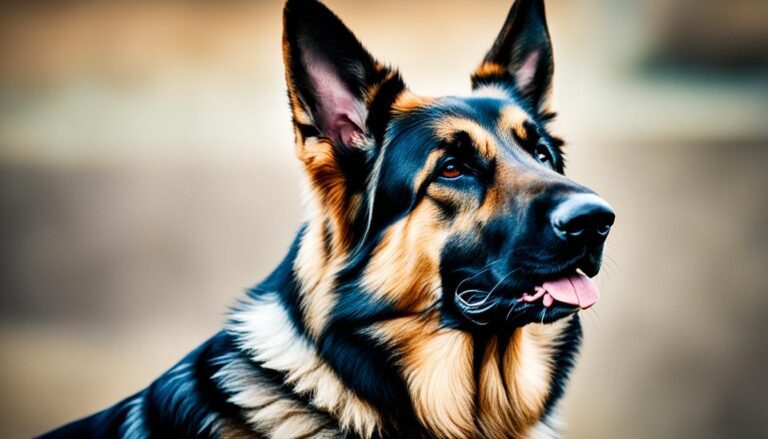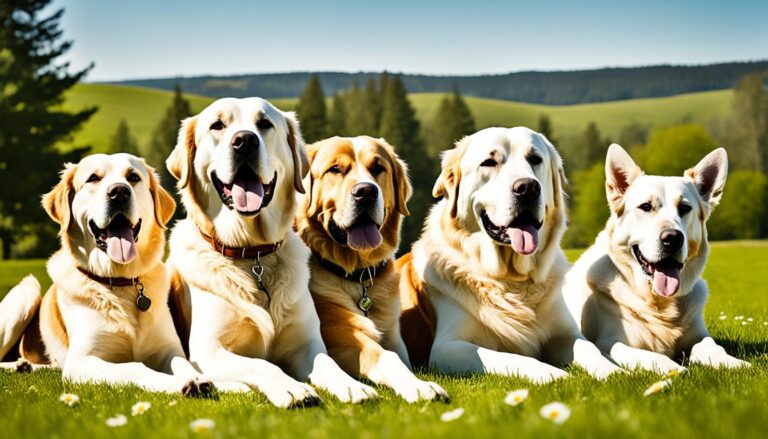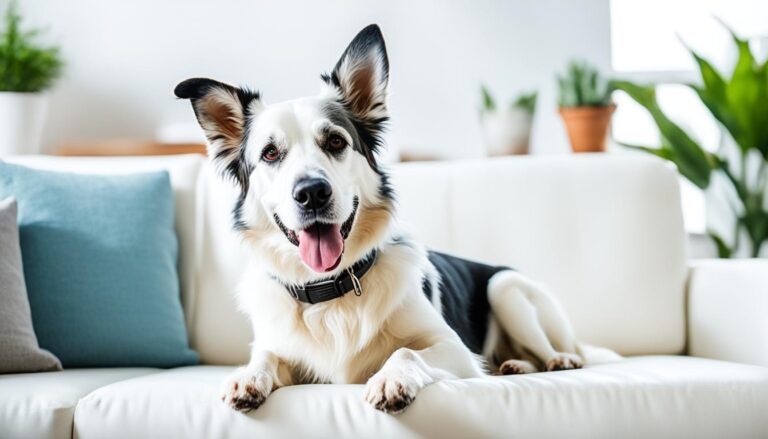Top Hypoallergenic Dog Breeds for Allergic Families
Did you know that approximately 10% of the population in the United States is allergic to dogs? Allergies can range from mild discomfort to severe respiratory issues, making it challenging for individuals and families to enjoy the companionship of a furry friend. However, there is good news for those with allergies who still want the joy of owning a dog. While no dog can be considered completely hypoallergenic, there are certain breeds that are more suitable for families with allergies.
Key Takeaways:
- No dog is 100% hypoallergenic, but some breeds produce fewer allergens.
- Hypoallergenic dog breeds have non-shedding coats and lower dander production.
- Regular grooming and a clean home environment can help reduce allergen exposure.
- Individual sensitivity to allergens may vary, so spending time with a dog of a specific breed is recommended.
- Consider both purebred and alternative hypoallergenic dog breeds when choosing a pet.
Purebred Hypoallergenic Dog Breeds
When it comes to finding the best hypoallergenic dogs for allergy sufferers, purebred hypoallergenic dog breeds are often recommended for families. These breeds have specific characteristics that make them more suitable for individuals with allergies, such as minimal shedding and less dander production. Here are some of the top purebred hypoallergenic dog breeds for families:
- Afghan Hound
- American Hairless Terrier
- Bedlington Terrier
- Bichon Frise
- Chinese Crested
- Coton de Tulear
- Giant Schnauzer
- Irish Water Spaniel
- Kerry Blue Terrier
- Lagotto Romagnolo
- Maltese
- Miniature Schnauzer
- Peruvian Inca Orchid
- Poodle
- Portuguese Water Dog
- Soft Coated Wheaten Terrier
- Spanish Water Dog
- Standard Schnauzer
- Xoloitzcuintli
These purebred hypoallergenic dog breeds have coats that don’t shed as much compared to other breeds, which means less allergenic dander is released into the air. This reduced dander production makes them more suitable for individuals with allergies or asthma. However, it’s important to note that while these breeds are considered hypoallergenic, no dog is completely hypoallergenic. Personal sensitivities may vary, so spending time with a dog of a specific breed before bringing one into the home is recommended.
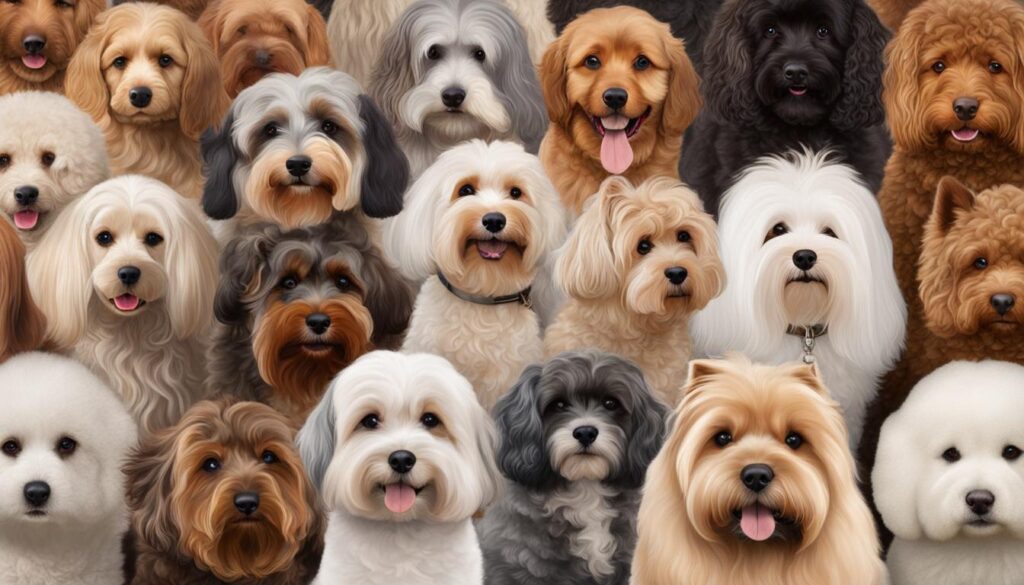
Quote: “These purebred hypoallergenic dog breeds have coats that don’t shed as much compared to other breeds, which means less allergenic dander is released into the air.”
Alternative Hypoallergenic Dog Breeds
In addition to purebred hypoallergenic dog breeds, there are also mixed breeds and designer breeds that are often considered hypoallergenic or low-allergy. These breeds have traits that make them less likely to trigger allergies in sensitive individuals.
Mixed Breeds
One popular mixed breed that is often touted as hypoallergenic is the Goldendoodle. This cross between a Golden Retriever and a Poodle combines the intelligence and friendly nature of both breeds, with a low-shedding and low-dander coat.
Another mixed breed to consider is the Bolognese. This small and affectionate breed originated in Italy and is known for its minimal shedding and hypoallergenic coat.
Designer Breeds
Among designer breeds, the Standard Poodle is a popular choice for those seeking a hypoallergenic pet. With its curly, non-shedding coat and high intelligence, the Standard Poodle is not only hypoallergenic but also highly trainable.
The Portuguese Water Dog is another designer breed that is often recommended for allergy sufferers. This medium-sized, water-loving breed has a curly, non-shedding coat that produces minimal dander.
Additional Breeds to Consider
Here are some other hypoallergenic and low-allergy dog breeds that you may want to consider:
- Maltese
- Chinese Crested
- Bichon Frise
- Yorkshire Terrier
- Welsh Terrier
- Basenji
- Affenpinscher
- West Highland White Terrier (Westie)
- Afghan Hound
- Bedlington Terrier
- Komondor
- Kerry Blue Terrier
- Miniature Schnauzer
- Scottish Terrier
- Shih Tzu
- Wire Fox Terrier
- Xoloitzcuintli (Mexican Hairless)
Keep in mind that the hypoallergenic nature of these breeds may vary from individual to individual. It’s always recommended to spend time with the dog breed you are considering before making a decision.
Hypoallergenic Dog Breed Comparison Table
| Breed | Coat type | Shedding | Dander production |
|---|---|---|---|
| Afghan Hound | Long and silky | Low | Low |
| Bedlington Terrier | Curly and woolly | Low | Low |
| Komondor | Long, dense cords | Low | Low |
| Kerry Blue Terrier | Soft and wavy | Low | Low |
| Miniature Schnauzer | Harsh and wiry | Low | Low |
| Scottish Terrier | Hard and wiry | Low | Low |
Conclusion
While no dog can be considered completely hypoallergenic, there are dog breeds that are more suitable for individuals with allergies. These breeds have non-shedding coats and produce less dander, making them a better choice for allergy sufferers. Both purebred hypoallergenic dog breeds and alternative hypoallergenic breeds offer options for families looking to enjoy the companionship of a dog without triggering allergy symptoms.
It’s important to understand that individual sensitivity to allergens can vary. Therefore, we recommend spending time with a dog of a specific breed before bringing one into the home. This will help determine if there are any allergic reactions or discomfort. Additionally, regular grooming and maintaining a clean home environment can further reduce allergen exposure for allergic individuals.
When choosing a hypoallergenic dog breed, consider breeds such as Bichon Frise, Poodle, Maltese, Portuguese Water Dog, and Chinese Crested, known for their allergy-friendly traits. These breeds have proven to be less likely to trigger allergies in sensitive individuals.
FAQ
Are there any dog breeds that are hypoallergenic?
While no dog is completely hypoallergenic, there are certain breeds that are more suitable for individuals with allergies due to their non-shedding coats and lower dander production.
What are some purebred hypoallergenic dog breeds?
Some purebred hypoallergenic dog breeds include Afghan Hound, American Hairless Terrier, Bedlington Terrier, Bichon Frise, Chinese Crested, Coton de Tulear, Giant Schnauzer, Irish Water Spaniel, Kerry Blue Terrier, Lagotto Romagnolo, Maltese, Miniature Schnauzer, Peruvian Inca Orchid, Poodle, Portuguese Water Dog, Soft Coated Wheaten Terrier, Spanish Water Dog, Standard Schnauzer, and Xoloitzcuintli.
What are some alternative hypoallergenic dog breeds?
Some alternative hypoallergenic dog breeds include Goldendoodle, Bolognese, Standard Poodle, Portuguese Water Dog, Maltese, Chinese Crested, Bichon Frise, Yorkshire Terrier, Welsh Terrier, Basenji, Affenpinscher, West Highland White Terrier, Afghan Hound, Bedlington Terrier, Komondor, Kerry Blue Terrier, Miniature Schnauzer, Scottish Terrier, Shih Tzu, Wire Fox Terrier, and Xoloitzcuintli.
Can hypoallergenic dog breeds completely prevent allergies?
No dog breed can completely prevent allergies. However, hypoallergenic dog breeds are more suitable for individuals with allergies due to their non-shedding coats and lower dander production.
How should I select a hypoallergenic dog breed?
It’s recommended to spend time with a dog of a specific breed before bringing one into your home to assess your sensitivity to allergens. Additionally, regular grooming and maintaining a clean home environment can help reduce allergen exposure for individuals with allergies.

